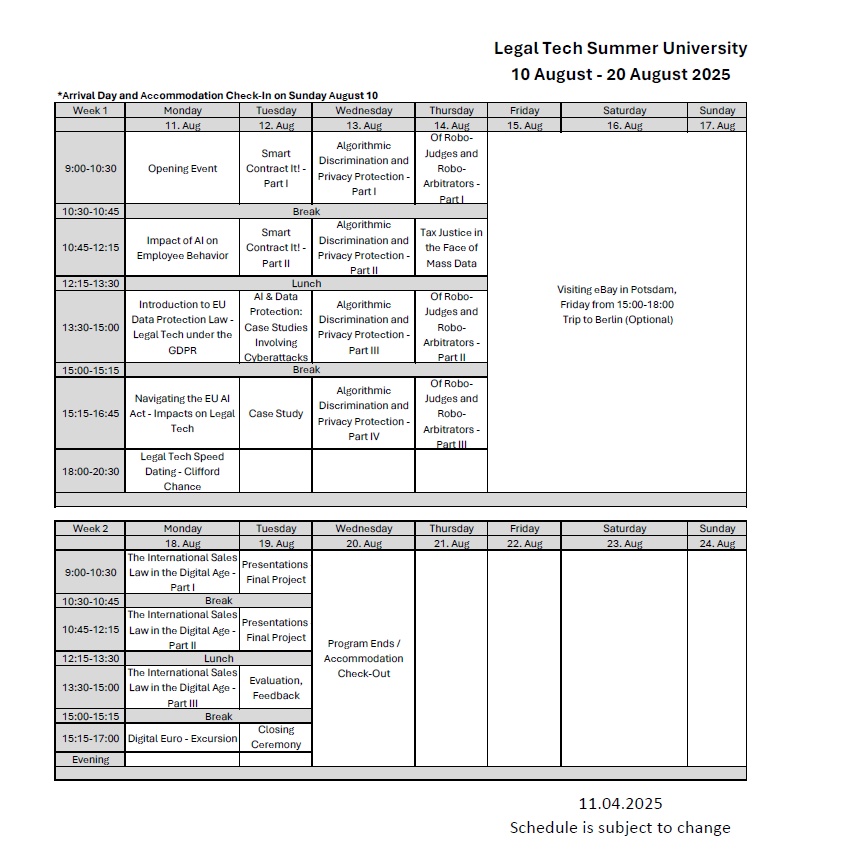Legal Tech - Emerging Trends in Law
Are you ready to explore the future of law and technology?
Join us for the Legal Tech Summer School in Frankfurt, where top experts will guide you through the latest trends in different fields such as AI, data protection, and smart contracts. Dive into cutting-edge topics like the impact of AI on employee behavior, legal tech under the GDPR, and navigating the EU AI Act. Learn from real-world case studies on cyberattacks, algorithmic discrimination, and privacy protection. Discover how smart contracts are revolutionizing transactions and explore the role of the Robojudge and International Sales Law in the Digital Age.
Beyond the classroom, you’ll have the unique opportunity to connect with renowned professors from Radboud University in the Netherlands, Università Carlo Cattaneo - LIUC in Italy, and Frankfurt University of Applied Sciences, as well as professionals from leading institutions such as the Hessian Ministry of Finance, eBay, Clifford Chance, Boehringer Ingelheim, and FIRST PRIVACY. Additionally, participants will visit eBay in Potsdam, where they will gain insight into how a global leader in e-commerce is integrating legal tech into their operations.
Engage in insightful discussions, expand your network, and gain practical knowledge to stay ahead in the evolving legal landscape. Don’t miss this chance to be part of the future of legal innovation! Apply now and take your expertise to the next level.
Impact of AI on Employee Behaviour (Saba Seyed-Ghafouri)
This course looks at the behavioural changes of employees through the use of AI and provides recommendations for organisations to promote the ethical use of AI.
Introduction to EU Data Protection Law – Legal Tech Under the GDPR (Dr. Tobias Born)
Ensuring compliance with EU data protection law while fostering innovation – mission possible? Discover EU Data Protection Law, and in particular the GDPR, and its relevance and influence on the creation and implementation of legal tech solutions. Join us to unravel the crucial balance between regulation and technological advancement in the legal sector.
Navigating the EU AI Act – Impacts on Legal Tech (Dr. Tobias Born)
Delve into the European Union's pioneering AI Act. This lecture explores the regulatory environment under the AI Act and the implications for legal tech development and use. Gain insights into how early adoption of compliance measures can future-proof business models.
AI & Data Protection: Case studies involving cyberattacks (Fábio Cavalcante, LL.M.)
This lecture explores how AI-driven solutions can help companies detect, prevent, and respond to data breaches, using real-world case studies of cyberattacks. From predictive analytics to anomaly detection, we will explore how AI strengthens cybersecurity defenses and mitigates risks.
Smart Contract It! (Priscila Luz Barreiros, LL.M.)
This lesson provides an in-depth introduction to the concept of smart contracts, exploring their applications and governance from both technological and legal perspectives. Smart contracts are self-executing agreements where the terms are written into code and automatically enforced, typically on blockchain networks. The course examines how these digital contracts operate in the context of daily business transactions, highlighting their efficiency and transparency. It will differentiate between the technological understanding of smart contracts as code and the legal view, which raises questions about enforceability, jurisdictional issues, and the complexities of contract law.
The current legal status of smart contracts will also be explored, evaluating whether existing legal frameworks adequately address their potential or if they remain a "gray area." Several jurisdictions have begun exploring how blockchain-based contracts fit within their legal systems, though many issues remain unresolved. The course will emphasize the need for specific regulation to ensure the enforceability and security of smart contracts, addressing concerns such as consumer protection and international sales law. Participants will be encouraged to think critically about the future regulation of smart contracts, focusing on balancing innovation with legal safeguards.
Algorithmic discrimination and privacy protection (Prof. Dr. Elena Falletti)
The objective of this lecture concerns the analysis of automated algorithmic decision-making systems through a multidisciplinary approach to frame how such software works and, as a consequence, how to assess it from a legal point of view, particularly in cases where the results they produce cause discriminatory effects. To this end, it is necessary to examine the relationship between the principle of equality, the protection of privacy, and the massive processing of personal and non-personal data that feed the algorithms themselves. The intrusion of such programs in everyday life, although underestimated, deserves attention in order to gain awareness that their main feature, i.e., decision-making automation, does not concern hypothetical autonomy and independence of judgment but concerns obedience to instructions predetermined by their programmers.
Of Robo-Judges and Robo-Arbitrators (Prof. Dr. Olaf Meyer)
Computers have long surpassed humans in numerous domains. With their unparalleled computational power, they outperform us in chess, excel in countless other games, and even create artwork and compose symphonies. Yet, law remains one of the final strongholds where human expertise still surpasses that of machines – though research in this area is advancing rapidly. This lecture delves into the historical and scientific underpinnings of artificial intelligence in law, examines the current state of the art, and offers a glimpse into its future potential. Finally, it addresses the technical, legal, and ethical boundaries shaping this development.
Tax Justice in the Face of Mass Data (Christian Voß and Dr. Viktor Bengs)
Panama, Paradise or Pandora Papers. For most people, these are just terms from the news, but for the Hessian tax authorities, they represent a gigantic task. Fighting for tax justice means that an always more complex and extensive amount of data needs to be analysed, evaluated and processed. Even apart from the so-called mass data leaks, the tax administration’s data pool is growing extensively. To overcome this huge challenge, the Hessian tax authorities have been relying on and beneficially using artificial intelligence for more than seven years. This presentation will provide a brief insight into the work done over the past few years.
The International Sales Law in the Digital Age (Prof. Dr. Andre Janssen)
This course provides a comprehensive exploration of International Sales Law within the context of the digital age, offering a foundation in the principles and scope of the CISG. Participants will examine the legal challenges posed by emerging technologies, such as AI, smart contracts (including smart dispute resolution), blockchain, automated systems, cyptocurrencies, metaverse and others. Special attention will be given also to the rise of digital content, software, data transfer contracts, and smart products. The course will also highlight the opportunities these technologies bring to parties in international sales.
Learning Outcomes
The Legal Tech Summer University course is designed to immerse students in the cutting-edge intersection of technology and law, with a particular focus on the European legal landscape. The course aims to provide participants with a comprehensive understanding of how emerging technologies are transforming legal processes, regulations, and practice. By the end of the program, students will have a solid foundation in the latest legal tech trends and the regulatory frameworks shaping their implementation and use across various jurisdictions.
The course includes an online component comprising 15 hours of instruction prior to the in-person sessions and 15 hours afterward. These online sessions are designed to provide foundational knowledge before the course and reinforce learning outcomes after its conclusion.
Course Method
The Legal Tech Summer University course will be delivered through a dynamic blend of lectures, case studies, and interactive workshops to ensure a well-rounded and practical learning experience. Lectures will provide students with a solid theoretical foundation and understanding of the key concepts and regulatory frameworks related to legal tech. These will be complemented by case studies that illustrate real-world applications and challenges, allowing students to analyze and discuss specific instances where technology intersects with legal practice. Interactive workshops will foster hands-on learning, where students can engage in simulations, group discussions, and practical exercises to apply the concepts they have learned in a collaborative setting.
Assessment
The course will culminate in a final presentation, where students will demonstrate their comprehensive understanding of the material by addressing a complex issue or developing a solution to a problem related to legal tech. This presentation will serve as the final exam, allowing students to showcase their analytical and practical skills.
Grading
Student grading will be based on two primary components: class attendance and the final presentation. Active participation and presence in the enrolled classes are essential, as they ensure that students engage with the material, contribute to discussions, and collaborate effectively with their peers. This component underscores the importance of continuous engagement throughout the course. The final presentation will be assessed for its depth of analysis, clarity of thought, and practical application of the course concepts. Together, these elements will provide a comprehensive evaluation of each student’s understanding and proficiency in the intersection of technology and law.
Students studying in the fields of law and/or legal technology are welcome to apply for the course. Maximum capacity for the course is 40 participants.
Students will earn a total of 6 ECTS points for the successful completion of the course. The course includes 60 contact hours.
A single ECTS point is defined as the equivalent of 25-30 hours of student workload, which includes class hours, readings, preparation for class activities, as well as assessment measures.
The program fee is 750€.
What is included in the program fee?
- 2 weeks of academic courses
- Course materials
- Public transportation within Frankfurt for the duration of the program
- Opening and Closing Events
Accommodation is not included in the program fee. The costs for accommodation are Multi-Bed Room (3-4 people) 325€ / Double Occupancy (2 people) 390€. More information can be found under Housing.
Registration
Apply now for Legal Tech!
Application deadline is July 1, 2025.
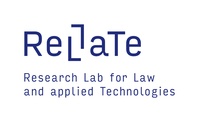
Lecturers
Priscila Luz Barreiros
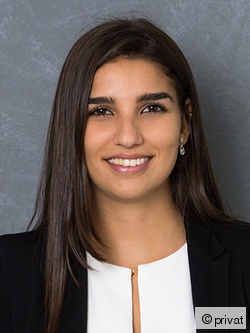
Priscila Luz Barreiros is an attorney at law, mediator, and lecturer specializing in labor and technology law. Her research focuses on the application and governance of smart contracts in daily business and in the international field.
Dr. Viktor Bengs
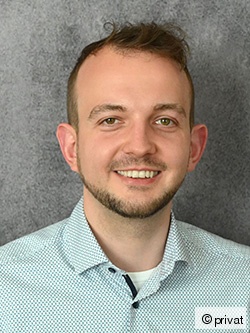
Dr. Viktor Bengs is a Data Scientist at the Artificial Intelligence Research Centre of the Hessian tax administration. Beforehand he was employed as an academic council in the research groups for Artificial Intelligence & Machine Learning (AIML) at the LMU Munich and for Intelligent Systems & Machine Learning (ISML) at the University of Paderborn. He received his doctorate in mathematical statistics at the Philipps-Universität Marburg in 2018.
Tobias Born

Tobias Born is a tech and digital lawyer at Clifford Chance with extensive experience in information technology, data protection, and e-commerce law. He joined the firm in January 2024 from another prestigious global law firm. Previously, Tobias served as Head of Data Protection for the EMEA marketplaces at eBay. He specializes in advising both domestic and international companies on data protection matters, as well as digitalization, artificial intelligence, cybersecurity, digital media, and other tech-related legal and regulatory issues, including in connection with M&A transactions.
Fábio Cavalcante
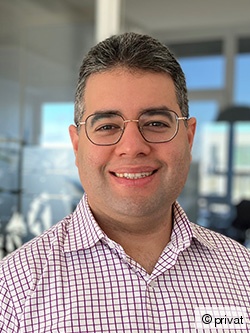
Fábio Cavalcante is Partner and Senior Privacy Counsel at FIRST PRIVACY. He is a Lawyer (qualified in Brazil) with studies at the University of Bremen, Humboldt University of Berlin and University of São Paulo and advises companies on the implementation of global privacy programs.
Prof. Dr. Elena Falletti

Elena Falletti is Associate Professor of Private Comparative Law, and Technology and Law at Carlo Cattaneo University-LIUC, in Italy. Her recent publications include Using Predictive and Generative Algorithms in Family Law: A Comparative Perspective and Surfing Reality, Hype, and Propaganda: An Empirical Comparative Analysis on Predictive Software in Criminal Justice (AI and Ethics, 2024).
Jan Grabenschröer
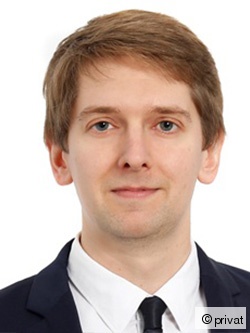
Jan Grabenschröer is Director of Privacy EU & Global Data Transfers at eBay, where he advises on privacy, AI, and data responsibility matters. Before joining eBay, he worked as a lawyer at the IT and privacy law departments of international law firms for several years.
Prof. Dr. André Janssen
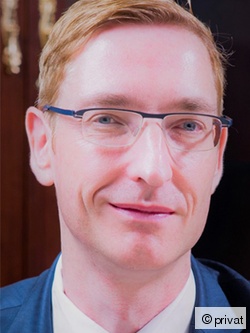
André Janssen is a chair professor at Radboud University in the Netherlands and publishes regularly about digitalization and AI and their impact on law. He is the co-chair of the Special Interest Group (SIG) on Digital Law of the European Law Institute and the co-chief editor of the European Review of Private Law (ERPL).
Prof. Dr. Olaf Meyer

Olaf Meyer is a professor of contract law at Frankfurt University of Applied Sciences and co-director of the Research Lab for Law and Applied Technologies (ReLLaTe). His research interests include legal tech in international commercial relationships, both in court proceedings and in arbitration. He is currently conducting research on the "Robo-Judge".
Saba Seyed-Ghafouri

Saba Seyed-Ghafouri works as Compliance Program Manager at Boehringer Ingelheim, where she is mainly responsible for compliance trainings and communications. Before joining Boehringer Ingelheim, she worked for almost 8 years at Merck KGaA, where her last position was Project Manager Learning & Communication within Group Legal Operations.
Christian Voß
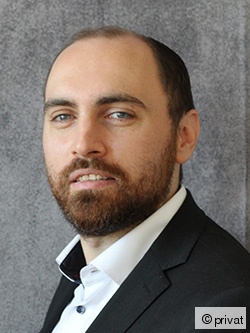
Christian Voß has been Head of the Artificial Intelligence Research Centre of the Hessian tax administration since it was founded 2019. Prior to that, he studied computer science at the University of Kassel and subsequently worked there for over 10 years. He was involved in numerous industrial projects, including in the fields of human-computer interaction, embedded systems and artificial intelligence.


